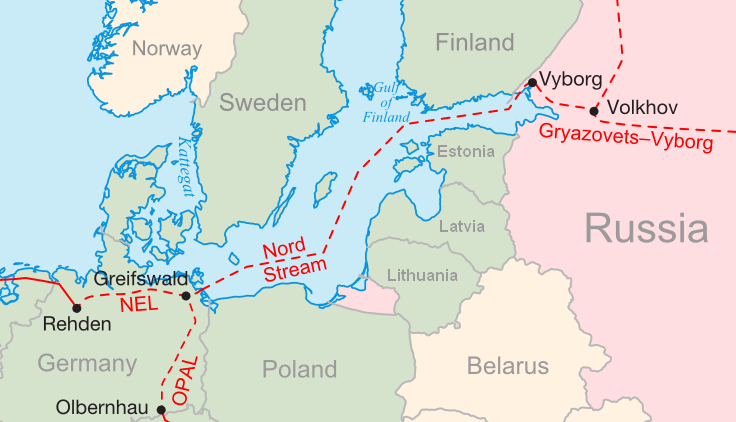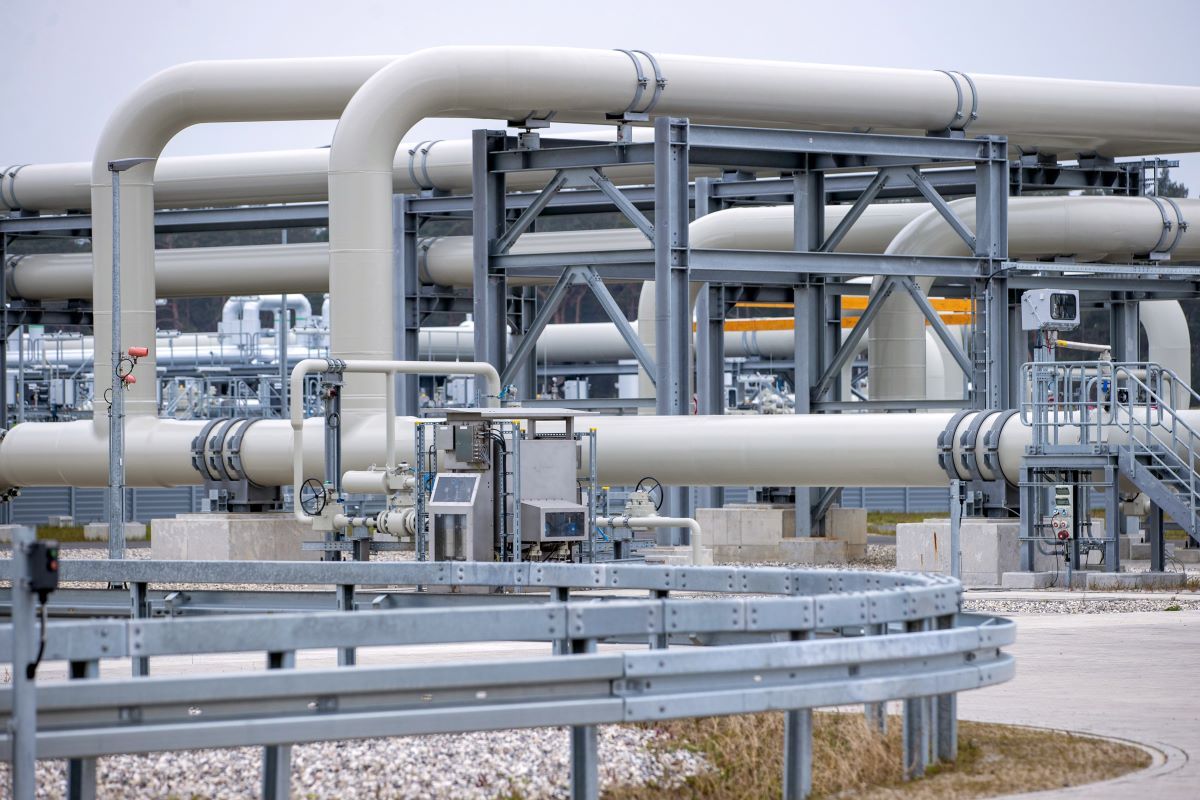In a May 19, 2021, statement, U.S. Secretary of State Antony Blinken said that while the Biden administration opposed the construction of the Nord Stream 2 pipeline, it supported temporarily waiving sanctions on some ships and individuals associated with the company related to rescue and environmental missions.
In May 2021, numerous media outlets reported that U.S. President Joe Biden’s administration would be waiving sanctions on vessels, corporate entities and the CEO of Nord Stream AG, an international consortium of five major companies overseeing the construction of Russia’s Nord Stream 2 pipeline into Germany. However, the administration still expressed opposition to the construction of the pipeline.
The claim was originally reported by the news website Axios on May 20, 2021. In the original report, the publication cited two sources who had been “briefed on the decision.”
Snopes contacted the State Department and was told the agency had submitted a report to Congress on May 19 saying the U.S. was lifting sanctions on five entities, four vessels, and Nord Stream 2 AG CEO Matthias Warnig. Unknown at the time of this writing was which specific entities would be waived. These sanctions were currently required under the Protecting Europe’s Energy Security Act (PEESA).
Nord Stream 2 is a wide pipeline network of offshore natural gas lines that run under the Baltic Sea from Russia to Germany. The pipelines have largely been opposed by the U.S. and some European nations that believe their creation would increase Russia’s influence in the region. Under PEESA, the U.S. is granted the authority to advance national security and foreign policy objectives, in particular, to address Russian pipeline projects that use “coercive purposes” and create risks to U.S. national security, threaten Europe’s energy security, and that could endanger Europe’s political and economic welfare.

“Russia uses its energy export pipelines to create national and regional dependencies on Russian energy supplies, leveraging these dependencies to expand its political, economic, and military influence, weaken European security, and undermine U.S. national security and foreign policy interests,” wrote the Bureau of Energy Resources in an April 9 statement. “These pipelines also reduce European energy diversification, and hence weaken European energy security.”
A spokesperson for the State Department referred our team to this statement written by Secretary of State Antony Blinken on May 19, 2021.
“I have determined that it is in the national interest of the United States to waive the application of sanctions on Nord Stream 2 AG, its CEO Matthias Warnig, and Nord Stream 2 AG’s corporate officers,” wrote Blinken. “Today’s actions demonstrate the Administration’s commitment to energy security in Europe, consistent with the President’s pledge to rebuild relationships with our allies and partners in Europe.”
While the Biden administration supported waiving sanctions on some elements associated with Nord Stream AG, the administration maintained its opposition to construction of Nord Stream 2 — and that seemed at odds with statements made by Blinken during his Jan. 19 nomination hearing, when he said the administration would “do whatever we can to prevent that completion” of Nord Stream 2.
Sanctions are placed on companies that the U.S. determines meet certain criteria/specifications that suggest a danger to national security. The State Department, in conjunction with the Biden administration, can also determine when they want to waive — or temporarily pause the application of — such sanctions.
Blinken said that the administration would continue to oppose the completion of the project that it acknowledged would weaken European energy security and that of Ukraine, the Eastern flank NATO, and EU countries. However, the sanctions that were waived — not lifted, as some media reports claimed — allowed for the continuation of various transactions and activities involving the Marine Rescue Service, which are unrelated to Nord Stream 2 construction. These activities include a range of search and rescue, environmental, and other missions.
“Issuance of this waiver also provides space for diplomatic engagement with Germany to address the risks a completed Nord Stream 2 pipeline would pose to Ukraine and European energy security,” an official with the State Department told Snopes in an interview.
In the statement sent to Snopes, Blinken reiterated that the administration would continue to oppose completion of the project.
“Our opposition to the Nord Stream 2 pipeline is unwavering,” Blinken continued. “Though we may not always agree, our alliances remain strong, and our position is in line with our commitment to strengthen our Transatlantic relationships as a matter of national security.”

